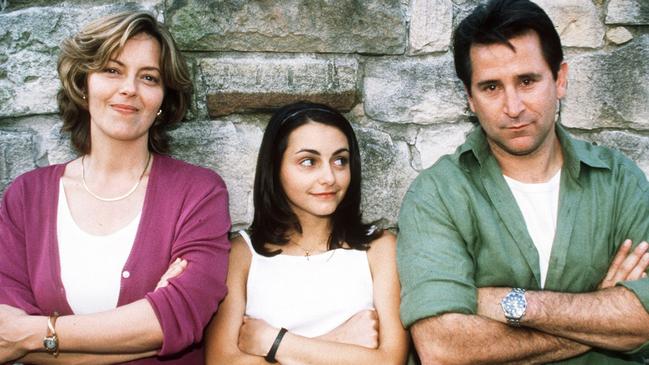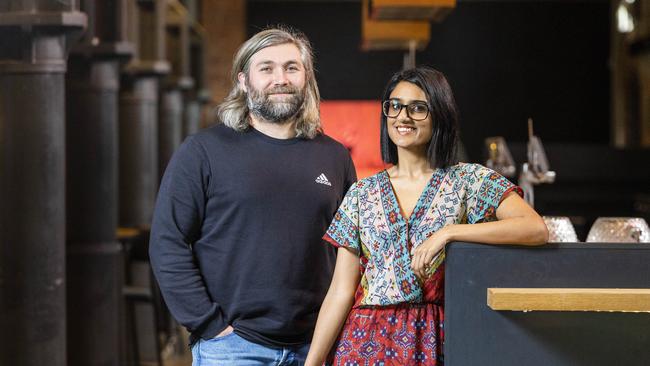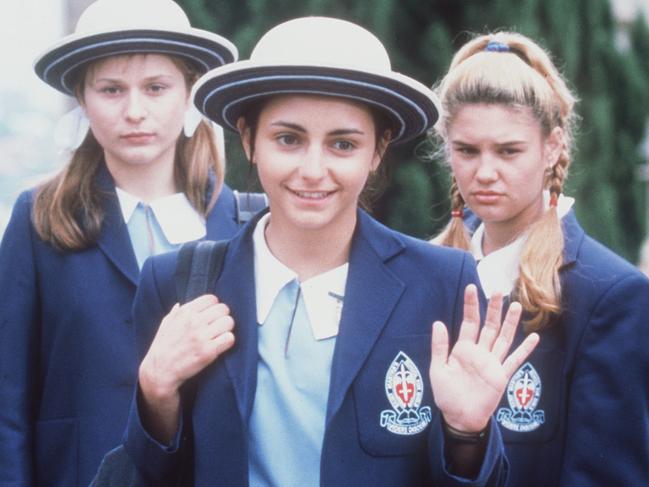Curses and blessings as a seminal Australian work finally hits the mainstage
Class politics are at the centre of South Asian playwright Vidya Rajan’s new stage adaptation of hit Australian coming-of-age novel Looking for Alibrandi.
Melina Marchetta’s novel about three generations of Alibrandi women – Josephine, her mother Christina and grandmother Katia – was one of the first novels to articulate the contemporary Italian-Australian experience, which it did with heart and humour.
Feisty protagonist “Josie” is on a scholarship at an elite Sydney girls school and dreams of one day being a lawyer – the first Alibrandi woman to have a say in how her life turns out. Meanwhile, Nonna Katia is convinced the family is “cursed”.
Marchetta wrote the screenplay for the 2000 movie starring Pia Miranda as Josie and Anthony LaPaglia as her long-absent father, who shows up in her life for the first time in 17 years. That same year, Josie loses a friend to suicide, dates the “wrong” guy – who turns out to be all right – smacks a part-time model in the face with a textbook and finishes the HSC.
Unlike the generation of Australians who read the hilarious yet tender coming-of-age story as part of the school curriculum, comedian and playwright Vidya Rajan didn’t pick up the novel until she was in her 20s. Having attended a public school in Perth before studying law at University of Western Australia, she immediately identified with the class struggles Josie faces in the world of private school privilege.
“There’s a lot of girls in Josie’s mould who are bright and the first in their family to have access to the crowds I did in law school,” says Rajan, speaking over video call from Melbourne. “So many of my friends’ dads owned firms or they were corporate lawyers. They knew they would be going down this line because that’s what you need to do to maintain the lifestyle that you were brought up in. I was doing community legal clinics, and I was like, ‘We’re all going to do this, right? We’re going to save the world’. They were just like, ‘No, we’re clerking at Minter Ellison’.”
Rajan, 32, spent one year working in community law and for the Office of the Director of Public Prosecutions before enrolling in a masters in writing for performance at the VCA.
Class is one of the themes she has chosen to emphasise in her new stage adaptation of Looking for Alibrandi in what is, remarkably, the first mainstage production of the story since the novel was published 30 years ago. Rajan says the co-production between Melbourne’s Malthouse and Sydney’s Belvoir theatres, starring Italian-Samoan actor Chanella Macri as Josie, remains largely faithful to the novel.

“We’ve emphasised that class element a lot more because it’s what I’m interested in and feels a bit more contemporary,” she says. “There’s a shift in emphasis. Josie is not suddenly coming out as queer and doing musicals or anything like that.”
Rajan, whose parents are from Tamil Nadu, has also massaged the plot lines so the intergenerational relationships between the three Alibrandi women drive the action. She was able to find a rhythm in their conversations by reflecting on her own interactions with her mother and aunt, who is like a grandmother figure.
“(When they talk) it’s quite chaotic but also omnidirectional. It’s like a mongoose chasing a snake chasing a rabbit,” she says, her face lighting up with enthusiasm. “I realised that the three women have different trauma responses that manifest in their conversations: Nonna is always fight, Josie is flight and Christina is in the middle trying to keep peace all of the time.”
Rajan was commissioned to write the play after being invited to submit a script sample to director Stephen Nicolazzo, who sought permission from Marchetta to adapt the novel. In a new scene she imagined the entire stage filled with pieces of paper, falling like snow, as Josie tears up a letter from her crush, John Barton, immediately after learning of his suicide. The scene, Nicolazzo says, brought him to tears.
“When I sent (the script samples) to Melina she said, ‘This is the one’,” Nicolazzo says. “From then it became Vidya and I working together with Melina’s blessing.”
Talking over video call from his home in Fitzroy, Nicolazzo admits to becoming “obsessed” by the novel when he first read it at around age 13, to the point that he would quote funny bits from the film to his friends.
“It’s like the Australian version of The Catcher in the Rye because it just speaks to an outsider,” says Nicolazzo, a third-generation Italian-Australian. “And that’s something that I’ve always related to.”

The co-founder of queer indie company Little Ones Theatre, Nicolazzo grew up all over Melbourne and lived in Essendon as a teenager “which was kind of weird because it was a more affluent place and I didn’t feel like we fitted in. I could relate to Josie being surrounded by people with money when you don’t have it. It’s a thing in the book where you are constantly reminded of where you come from so that you’re put in your place, especially when it comes to class.”
Nicolazzo didn’t know Marchetta when he contacted her via her website in 2019, asking if she would be interested in him adapting his favourite novel for the stage. He says Marchetta had been sitting on a panel at the time with his friend and collaborator, author Christos Tsiolkas. (Nicolazzo’s adaptation of the author’s short story collection, Merciless Gods, won a Green Room Award and he also adapted Tsiolkas’s first novel Loaded, which tells the story of a 19-year-old gay Greek-Australian, for an audio play.)

Soon after, Marchetta invited Nicolazzo to Sydney,where they met for coffee at a little Italian cafe, not far from where the scenes at Nonna Katia’s house were filmed for the movie.
“She said to me in the meeting, ‘You know, this book is my family’,” Nicolazzo says, placing his hand on his heart. “It is her soul and it is such a big part of her life. She had many offers for people to adapt the work over the last 30 years. I think she found someone she could trust, who could take on the project and make it new.”
The resurrection of this 30-year-old story for the stage has brought Nicolazzo to a point of reflection about the Australian theatre canon.
“What are the stories of the past that define the country, culturally?” he asks. “Loaded by Christos Tsiolkas and Looking for Alibrandi are seminal works, talking about a period of Australian history in a way that hadn’t been spoken about before, whether it’s about sexuality or the European migrant experience in the working-class suburbs. They feel like they’re really important stories to keep bringing back to the conversation.”
Looking for Alibrandi shows at Malthouse until July 31 and at Belvoir October 1-November 6.
Aaron Francis




To join the conversation, please log in. Don't have an account? Register
Join the conversation, you are commenting as Logout